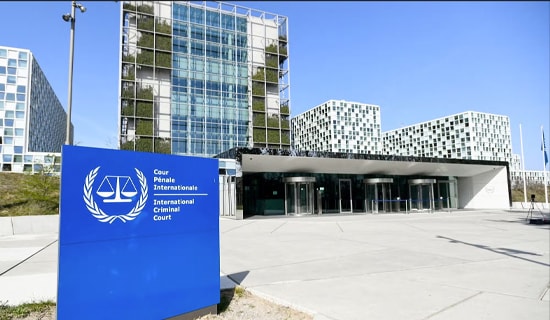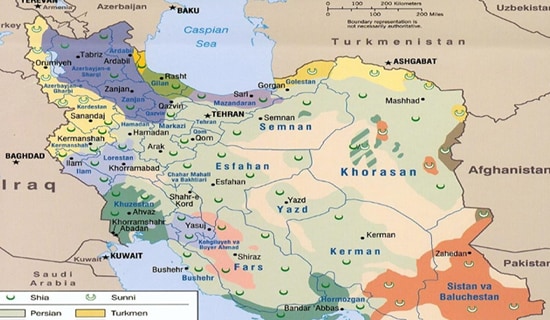The Syrian and Egyptian media have in recent years alternated between exchanges of blows and relative quiet. Approximately five months ago, the Egyptian government daily Al-Ahram published some articles critical of Syria, to mark the first decade of the presidency of Bashar Al-Assad. The Syrian daily Al-Watan, which is close to the Syrian regime, responded by declaring an end to the media ceasefire between the two countries and threatening to publish attacks on Egyptian President Hosni Mubarak, but it did not hsten to realize that threat.[1]
Now, following several months of relative quiet, the two sides have again joined battle. However, unlike in the past, high-ranking Syrian officials, including Assad himself, have brought up the issue of the tension between the two countries. In an interview with the London-based Saudi daily Al-Hayat, the Syrian president acknowledged the severed Syria-Egypt relationship, citing fundamental differences of opinion and laying the blame on Egypt.[2]
Syrian Deputy Foreign Minister Faisal Al-Miqdad called the relations between the countries "regrettable," saying that Egypt should "rectify its mistaken policy, for which the Egyptian people are paying the price"[3] As of this writing, however, there has been no formal Egyptian response to these statements, aside from an editorial by Al-Ahram editor Osama Saraya criticizing Assad's statements in the Al-Hayat interview. This editorial provoked several biting responses in Al-Watan.
Following is a review of this round of the battle between the Egyptian and Syrian media:
Al-Ahram Editor Criticizes Syrian-Iranian Cooperation
Osama Saraya, editor of the Egyptian government daily Al-Ahram, focused his criticism on Syrian President Bashar Al-Assad's policy of cooperation with Iran, which Saraya said crossed red lines and endangered the Arab countries. He rejected Assad's contention in the Al-Hayat interview that the Syria-Egypt disagreements could be bridged, insisting that the two states have incompatible worldviews. He wrote:
"...We are prepared to accept disagreements, whatever they may be, but when they become behavior, moves, and plans that Syria is working towards implementing with Iran at the expense of the interests and security of the peoples of the Arab states – this is a new reality which necessitates different procedures. It cannot be handled with the patience that is customary when there is disagreement...
"[Syrian] President Bashar [Al-Assad] sees [Iranian President Mahmoud] Ahmadinejad's visit to Beirut as an inauguration ceremony for the birth of a new Middle East, as he sees it or longs for it, led by Iran. We see what happened in Beirut [i.e. Ahmadinejad's visit] as a bold attempt by the Iranians to establish a presence in the heart of the Arab region, while subordinating its fundamental problems and strategic interests, and its national security, to the Iranian nuclear dossier... This makes us apprehensive about [Assad] – not just about Iran.
"President Bashar has made us think that he supports the resistance, as a red line from which he will not retreat. But it is clear to us that in actuality he does not support the resistance – because if he did, resistance in the Golan to regain the territory and to liberate Syrian land would have been foremost in his efforts. Only when the resistance is in Iran's favor is it evident that he supports it...
"We want Syria to intervene and utilize its relations with Iran in order to minimize its destructive role in our region, and to help the Palestinians attain national liberation, establish a state, and end the division between the West Bank and Gaza. [We want Syria to] use its influence, instead of Iran using [Syria] to limit the Arab role in our region... We want Syria to stop Iran's turning on the other ethnic groups, particularly the Christians and the Sunnis in Lebanon. We want Syria to work together with the Arabs to end the Iranian influence in Palestine, so that the Palestinians can be united and can preserve their interests... We want Syria not to act as Iran's [right] hand in aiding the Shi'ite minority in the Gulf region and thus threatening [that region's] stability.
"If Syria will do all this, it will be restored to the status that we witnessed [in the past], and to its strength, which we will utilize in promoting the Arab causes. This is all we want today from Syria."[4]
Al-Watan Editor: Egypt's Aim Is to Serve the U.S. and Israel
Reactions to Saraya's editorial emerged over the course of a few days in the Syrian press. Two days after the editorial appeared, the Syrian government daily Al-Watan published an article accusing Egypt of abandoning the region's interests by espousing an isolationist policy, for example with respect to Sudan. Columnist Malik Al-Natour wrote:
"Doesn't this issue [i.e. the Sudan partition plan] justify some action by Egypt, the 'center of the world'...? We have seen what the Zionists did in Gaza, and no one [in Egypt] batted an eyelash. Doesn't Egypt understand that a partition of Sudan poses a tremendous threat to its own borders, not just to its national security?... Why is Egypt giving up on the Arabs and their problems? Does the U.S. aid [that it receives] compensate it for everything? Doesn't Egypt see that [certain] countries in the region [i.e., Iran and Turkey] are striving [to take on] new roles in our region, while [Egypt] is gradually relinquishing its status as a regional player?"[5]
A few days later, in an Al-Watan editorial, the newspaper's editor, Waddah 'Abd Rabbo, attacked "Egypt's rulers": "What most aggravates Egypt's rulers is telling them the truth about their role in the region, or telling them that Cairo has no Arab role and that the Arab countries need no Egyptian intervention, and that no one needs Egypt – not in good times, and not in bad times either.
"Egypt, which once played a historic role in helping the Arabs and their problems, lost its power because of its rulers. Its only aim [now] is to serve the interests of Israel and the U.S...
"Egypt's hostility to Damascus stems from its leaders' sense of Syria's rising role, of President Assad's popularity in the Arab street from the Mediterranean to the Gulf, and of the shrinking of Egypt's role... For that reason, Egypt's rulers became hostile to Syria and tried to accuse it of assassinating [former Lebanese prime minister] Rafiq Al-Hariri..."
'Abd Rabbo added that this hostility had increased after the resistance was victorious in the 2006 Lebanon war and the 2008-9 Gaza war – wars in which Egypt supported Israel: "[Egypt] wants all the Syrians to submit and the resistance to be eliminated, and it wants Israel to force its conditions for peace and for the region, without a declared Palestinian state, without demarcation of this state's borders, and without declaration of its capital. The best answer to the Egyptian rulers, and the Egyptian journalists, who in recent days enthusiastically gave [certain] countries lessons in foreign policy, is: Leave us alone...
"In any event, the door remains open for Egypt's rulers to return to the Arab fold and to the fold of resistance, and to rectify its mistakes... Damascus's heart is expansive and forgiving, for the sake of the supreme interests of the Arabs and Arab solidarity."[6]
Two days after that, Al-Watan columnist Bassam Abu 'Abdallah wrote that Egypt is collaborating with the U.S. and Israel, which sought to take over the region. He wrote that Saraya "was expressing in Arabic what was said in English by the Americans and in Hebrew by the Israelis." Abu 'Abdallah set out a broad spectrum of issues on which Syria and Egypt disagreed – defining the enemy, the new Middle East, the resistance, and the Arab interests – and attacked Egypt's "complex about Iran and Turkey." He wrote that in contrast to Syria, which had fulfilled its national duty and taken in a million Iraqi refugees, those who "bemoan the supreme Arab interests [i.e. Egypt] did not take in [a single refugee]. We only heard them talk, and [saw] no deeds. They always... implement the American position."
He went on to say that Egypt and its journalists had remained silent as the Americans and Israelis perpetrated destruction and slaughter in Arab and Muslim countries, and that the members of the resistance in Lebanon were not being manipulated by Syria or Iran – unlike those who collaborate with the U.S. and Israel, meaning Egypt, who were indeed being manipulated.[7]
[1] See MEMRI Special Dispatch No.3117, "Syrian Daily: The Syria-Egypt Media Ceasefire Is Over," July 25, 2010, Syrian Daily: The Syria-Egypt Media Ceasefire Is Over.
[2] See MEMRI Special Dispatch No.3344, "Assad in Interview: 'The Road [To Good Relations With] Syria Passes Through the Resistance,'" November 4, 2010, Assad in Interview: 'The Road [To Good Relations With] Syria Passes Through the Resistance'.
[3] Al-Rai (Kuwait), November 11, 2010.
[4] Al-Ahram (Egypt), October 29, 2010.
[5] Al-Watan (Syria), October 31, 2010
[6] Al-Watan (Syria), November 2, 2010.
[7] Al-Watan (Syria), November 4, 2010.








